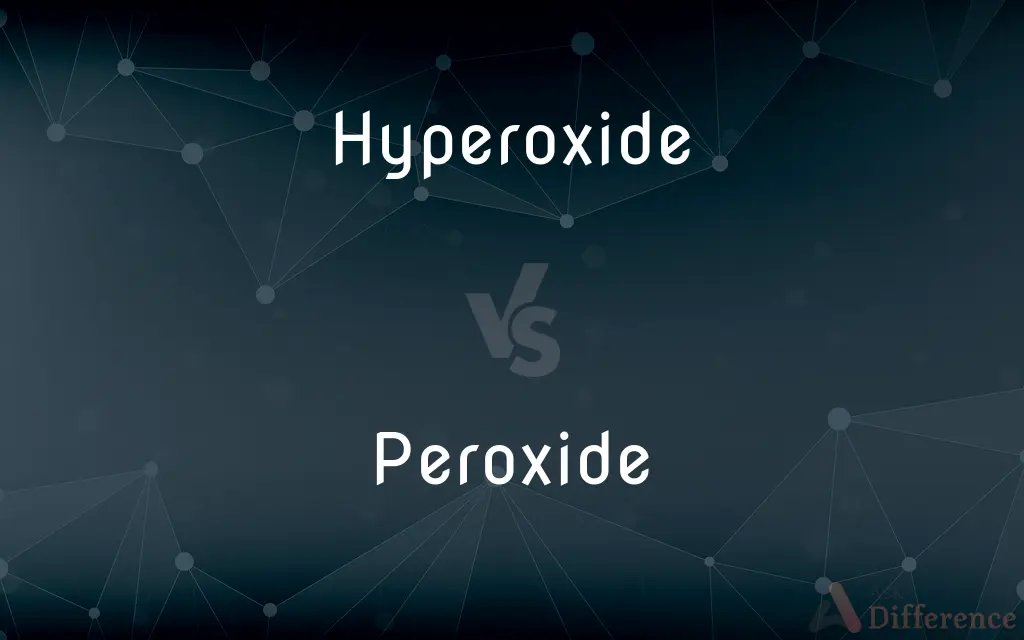Hyperoxide vs. Peroxide — What's the Difference?

Difference Between Hyperoxide and Peroxide
ADVERTISEMENT
Compare with Definitions
Hyperoxide
(inorganic chemistry) Any oxide that has a higher than normal ratio of oxygen to metal
Peroxide
Peroxides are a group of compounds with the structure R−O−O−R, where R = any element. The O−O group in a peroxide is called the peroxide group or peroxo group.
Hyperoxide
A compound having a relatively large percentage of oxygen; a peroxide.
Peroxide
The divalent O2 group, or a compound containing this group, such as sodium peroxide, Na2O2, used as an oxidizing agent or bleach.
Peroxide
Hydrogen peroxide.
ADVERTISEMENT
Peroxide
To treat with peroxide.
Peroxide
To bleach (hair) with hydrogen peroxide.
Peroxide
(inorganic chemistry) A divalent radical or anion containing two oxygen atoms linked by a covalent bond; any substance containing this group which yields hydrogen peroxide when treated with an acid.
Peroxide
Hydrogen peroxide, especially when in an aqueous solution used as a bleach.
Peroxide
(organic chemistry) Any compound containing the functional group R-O-O-R'.
Peroxide
(transitive) To treat (something) with hydrogen peroxide, especially hair in order to bleach it.
Peroxide
An oxide containing more oxygen than some other oxide of the same element. Formerly peroxides were regarded as the highest oxides. Cf. Per-, 2.
Peroxide
A viscous liquid with strong oxidizing properties; a powerful bleaching agent; also used as a disinfectant and (in strong concentrations) as an oxidant in rocket fuels
Peroxide
An inorganic compound containing the divalent ion -O-O-
Peroxide
Bleach with peroxide;
She must peroxide her hair-it looks unnaturally blond
Share Your Discovery

Previous Comparison
Loop vs. Turn
Next Comparison
Murmur vs. Souffle














































